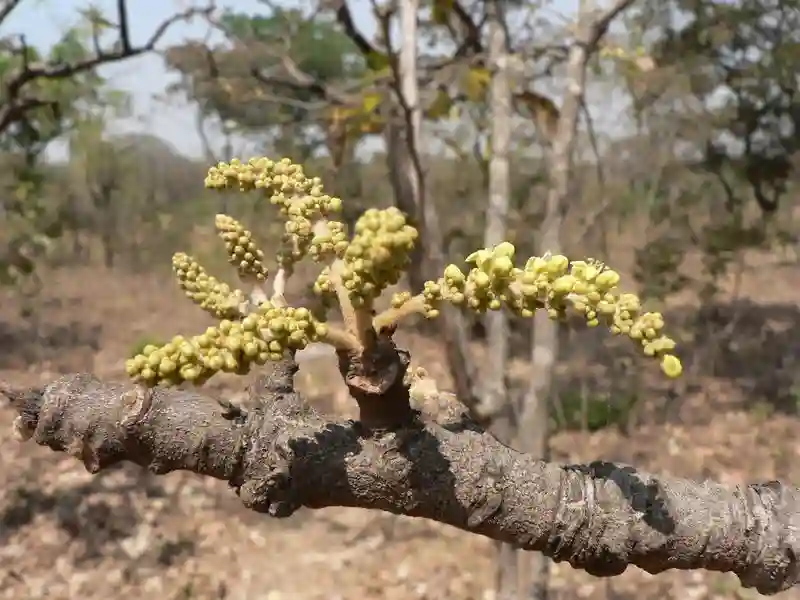Conservationists and traditional healers have warned that the Mugondorosi tree, known for its purported ability to treat male erectile dysfunction (ED), faces extinction due to overexploitation, reported NewsDay.
Overharvesting is being driven by rising demand for the tree’s bark and roots which are considered natural aphrodisiacs.
According to a report, at least 80% of men in Zimbabwe have experienced erectile dysfunction (ED) at some point, while over 60% currently face this issue frequently.
The Men’s Clinic estimates that about 60% of men in Zimbabwe suffer from ED, with many reluctant to discuss their condition.
The Mugondorosi tree (scientifically known as Lannea discolor), is native to Zimbabwe’s dry forests and is known for its medicinal properties.
Zimbabwean men have used the Mugondorosi tree for generations to enhance virility and sexual performance.
The bark and roots are thought to restore sexual vitality without the side effects of modern medications.
Speaking to NewsDay, 52-year-old Matongore, a subsistence farmer from Seke District, Mashonaland East Province, claimed Mugondorosi works better than modern medicines. He said:
I have used Mugondorosi bark for years. It worked when nothing else did. I tried pills from the clinic, but they gave me headaches and didn’t help. The Mugondorosi worked immediately. But now it’s becoming difficult to find.
However, it is now feared that the tree is on the verge of extinction due to overexploitation.
Health expert Mlungisi Ndebele said that ED is often seen as a taboo subject, making it hard for men to come forward and get appropriate treatment. Added Ndebele:
In many cases, men are embarrassed and turn to traditional remedies rather than discussing the issue with a healthcare provider. This contributes to the high demand for plants like Mugondorosi.
The demand for the Mugondorosi tree has surged, particularly among ageing men, leading to unsustainable harvesting practices to meet this need.
In rural areas, where access to Western medicine is limited, traditional remedies are the primary option for treating ED.
Societal expectations around masculinity and sexual performance increase the demand for natural treatments like Mugondorosi, as a man’s virility is often tied to his social status.
The high demand has resulted in significant pressure on Zimbabwe’s forests, with traditional healers often harvesting the tree unsustainably.
Many trees are being completely uprooted or excessively debarked, jeopardizing their ability to regenerate and threatening the species’ survival.
Sekuru Nhira, a traditional healer from Chiredzi with over 30 years of experience, admits Mugondorosi is under threat but defends his role in the process. He said:
Our ancestors gave us this tree to help people. We healers only take what we need. But now, people come from far away, paying big money to take as much as they can carry. This is the problem.
We need to teach people how to harvest properly, or soon there will be nothing left.
Conservationists like Blessing Rwatangira, from the Zimbabwe Tree Conservation Trust, said that urgent action should be taken to protect the tree species. Said Rwatangira:
The over-harvesting of Mugondorosi is not just a cultural or medical issue it’s an environmental disaster.
This tree plays a crucial role in preventing soil erosion, providing shade, and serving as a habitat for various species.
We are seeing entire sections of forests being cleared, with no replanting. At this rate, the Mugondorosi tree could be wiped out in a few years.
Dendrologist Morris Switchen supports conservation programmes that blend traditional knowledge with scientific methods. He said:
Sustainable harvesting techniques, such as only taking a portion of the bark and leaving the tree to regenerate, need to be promoted.
Moreover, we must encourage replanting initiatives. Communities which depend on Mugondorosi for both their livelihoods and health need to be educated and supported in these efforts.
Mugondorosi extinction could lead to severe ecological imbalances, affecting everything from local wildlife to the livelihoods of communities that rely on forest resources.
Erectile Dysfunction (ED) is the inability to get or keep an erection firm enough for sexual intercourse. It can be caused by various factors, both physical and psychological.
Physical causes include cardiovascular disease, diabetes, high blood pressure, high cholesterol, obesity, and hormonal imbalances.
Psychological causes can include stress, anxiety, depression, and relationship problems.
ED can affect men of all ages, but it becomes more common with age. It’s important to address ED because it can impact self-esteem, relationships, and overall well-being.
More: Pindula News

